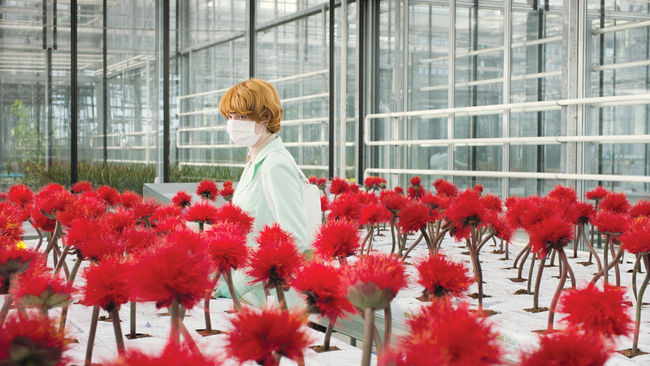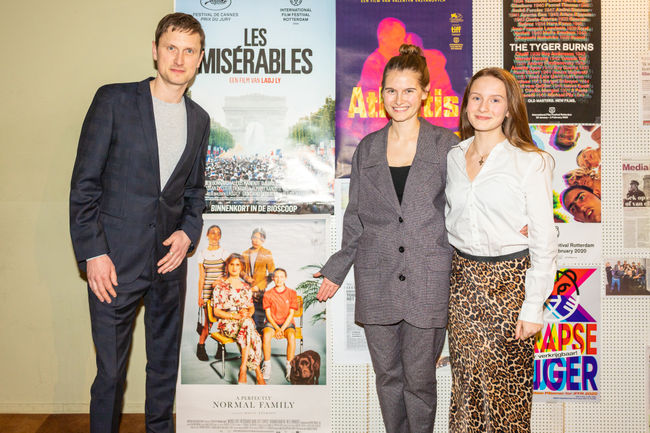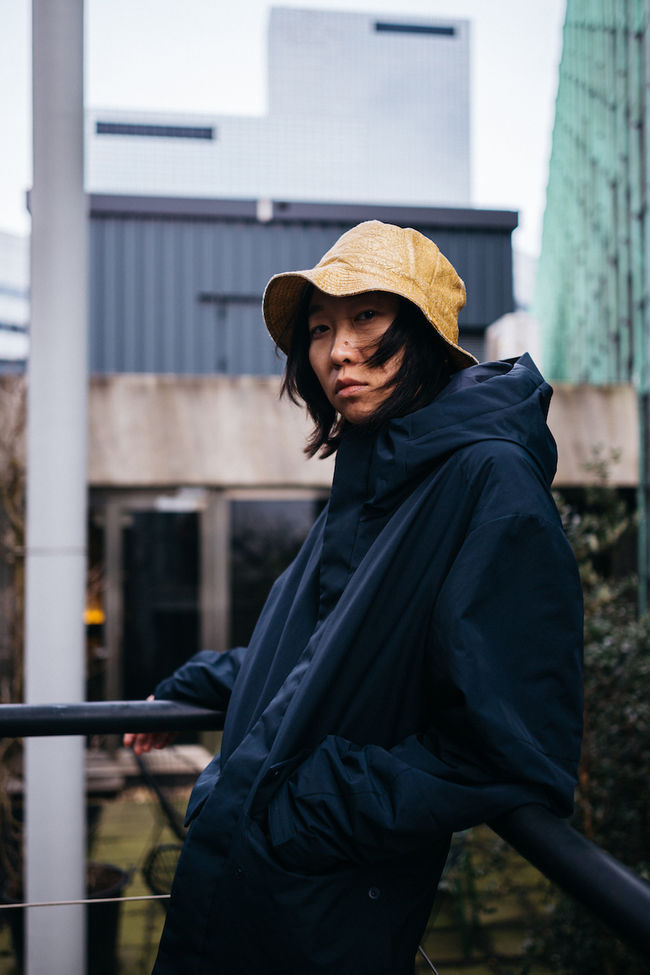Drama Girl
23 January 2020
Vincent Boy Kars on Drama Girl
Vincent Boy Kars is working on an oeuvre that turns the rules for non-fiction (and fiction) inside out. Drama Girl is the second part of Kars’ highly personal trilogy about millennials in search of their place in the world.
Whether it’s someone making their first porn (My First Porn Film and TV show Vieze film/Dirty Movie) or a friend who temporarily gives the Dutch filmmaker complete control over his life (Independent Boy): for Vincent Boy Kars, intellectually deconstructing the documentary genre and confronting the maker and subject emotionally go hand in hand.
It’s the central theme to Kars’s budding portfolio: he strikes a deal with his protagonists, in which they agree to subject themselves to certain rules. From that point forward, together they discover what happens next. The viewer is invited to witness the entire process – including candid discussions about what it is they are actually doing. The same happens in Drama Girl: protagonist Leyla re-enacts life events, with actors playing the part of her parents and partner, to find out whether this will finally give her control over her life story.
You usually work with friends, right?
“So far, yes, but Leyla de Muynck was the first stranger I cast. I was looking for someone who had suffered in similar ways as I had, and I didn’t find that person among my friends. I was also looking to step outside of my comfort zone.”
Does the concept always come first?
“Yes, because every film is something I want to say about myself, and about my generation, the millennials. The protagonist is cast later. My subjects come from my own life, my immediate surroundings and just outside of that.”
You mentioned director Ulrich Seidl as inspiration?
“He is. Also films like The Five Obstructions by Lars von Trier and The Act of Killing by Joshua Oppenheimer. These are films in which fiction and non-fiction coexist. Watching them, I had the revelation that you could create a world, just like you do in fiction, and then shoot a documentary within that world. That’s what I did with Independent Boy, and we took it a step further with Drama Girl. This time, it feels more like cinema, using actors and a larger crew.
You don’t conceal your staging. In Drama Girl, we even hear you call out “action!” and “stop!”.
“The process in Drama Girl is its story. I’m open about that, to the viewer too. That’s how reality shows differ from film. I grew up watching Big Brother and I still rewatch the first season of the Dutch series, where participants still react very spontaneously to events taking place within the show. I’m inspired by the conceptual side of reality shows. Without MTV Made, for example, I might not have made Independent Boy.
Reality often seems fake.
“I think we tend to be too cynical about these things. If you live with a group of people on an island for a while, you really do experience something special. Something you will never forget.”
Reality as a more intense way of living?
“In life, people have walls. Even friends, even family. Nobody wants to delve as deep as I do in my films. I do feel that need – but where in real life I’m too conflict-avoidant, in my films I fear almost nothing. There, I don’t stop until someone tells me to.”
Sometimes you keep pushing Leyla, even after she asks you to stop.
“Only when I think it’s better for her, too. We set out to capture and present a multifaceted depiction of her. Nobody cares for a superficial story. Also, our agreement meant she was allowed to decide what stays and goes from the final edit of the film. That’s a deal I always make; this way you don’t feel restricted during filming.”
So, the camera is a catalyst and not an obstruction?
“Absolutely. Thanks to the camera’s presence, barriers disappear and you can really get to know each other. Of course, the first few days of shooting are always a bit awkward. But after that, it’s fine. Plus, you can’t lie on camera. You get exposed. Even if I believe you at first, I will pick up on it when I’m editing.”
Does it help that millennials grew up surrounded by cameras?
“I think so. We’re always performing a role, anyway. I’m performing a different version of myself during this interview, compared to how I act when I’m with my girlfriend or taking the train. I think our generation is more aware of that.”
Yet you seem most pleased when Leyla resists her role.
“Because she’s not acting in those moments, she just is. We started out re-enacting events that had happened some time ago, and gradually got to events she hadn’t fully processed yet. In those moments, at times, she didn’t want to continue. And yes, that is where things start to get really interesting to me. That’s where the line between acting and being blurs.”
Written by Kees Driessen
Drama Girl is in theatres from 5 March



